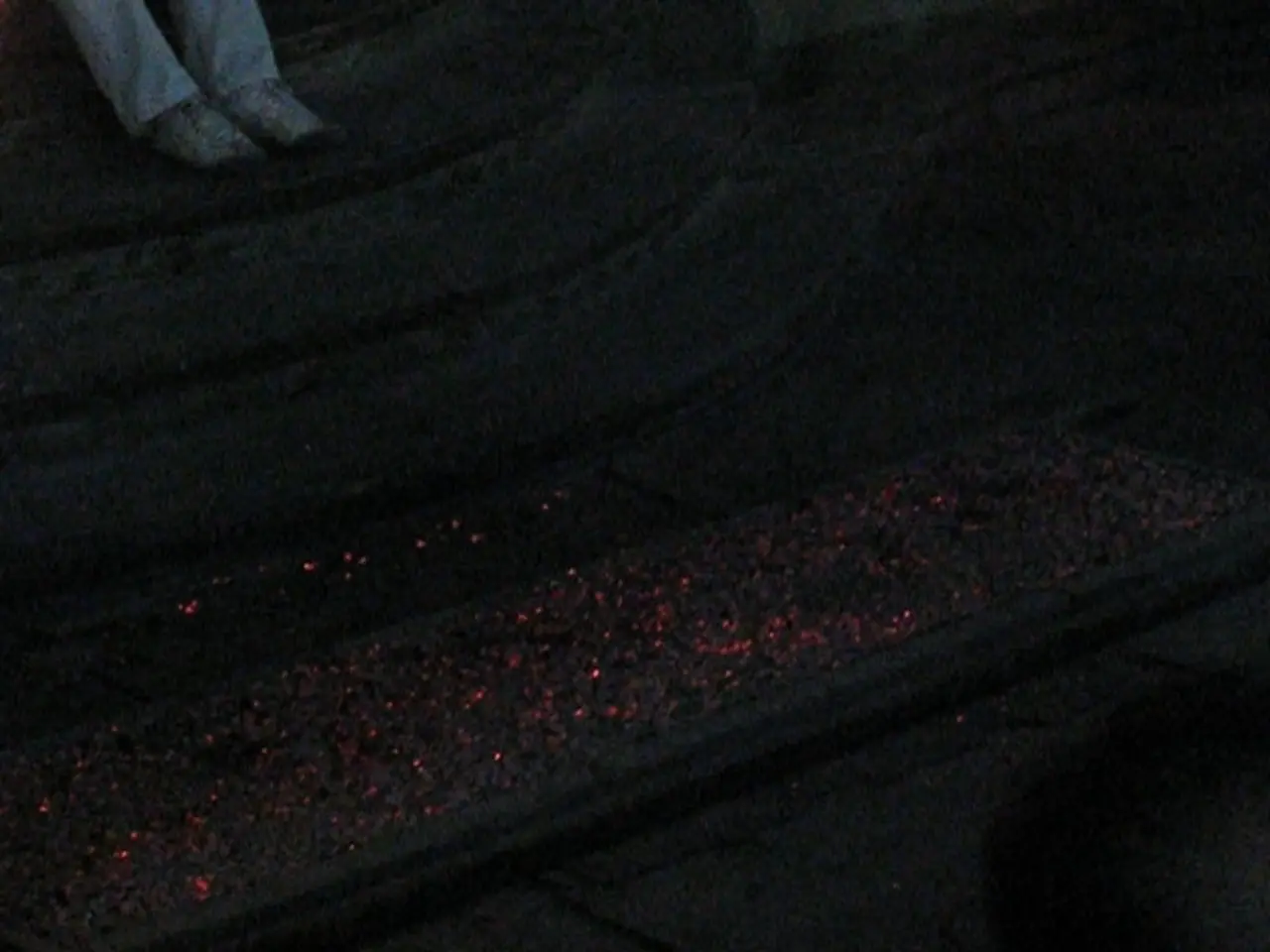1. Factors leading to dark-colored urine
Dark urine can be a concerning sign, indicating various health conditions beyond simple dehydration. In this article, we delve into the common causes of dark urine, symptoms to watch out for, and when to consult a healthcare professional.
Dark urine may result from several common causes, such as jaundice related to liver or bile duct issues, certain foods and medications, liver disorders or hemolysis, urinary tract infections (UTIs), muscle breakdown (rhabdomyolysis), and other rare conditions like porphyria or certain bleeding disorders.
For instance, dark urine may be an early sign of jaundice caused by excess bilirubin, a yellowish pigment, due to conditions like pancreatic cancer blocking the common bile duct[1]. Consuming foods like fava beans or rhubarb can darken urine, while some medications such as metronidazole or chloroquine also cause dark urine[3][4].
Urinary tract infections (UTIs) can cause urine to darken, sometimes accompanied by a strong ammonia smell, cloudy urine, and symptoms like burning during urination or frequent urges[2][3]. On the other hand, severe muscle injury releases pigments into urine, causing dark coloration[3].
If dark urine persists, worsens, or is accompanied by other symptoms like jaundice, abdominal pain, fever, or blood in urine, it is important to consult a healthcare professional for accurate diagnosis and treatment.
One condition that may cause dark urine is Hepatitis C (HCV), a virus that can cause an infection of the liver. Symptoms of HCV usually appear within 2 weeks to 6 months of exposure to the virus and may include fatigue, sore muscles, joint pain, fever, nausea or poor appetite, stomach pain, itchy skin, dark urine, and jaundice[6].
People who received a blood transfusion or organ transplant before July 1992 or a blood product for clotting problems manufactured before 1987 are at risk of having HCV[5]. Other risk factors for HCV include sharing needles, having sex without a condom with a person who has HCV, and receiving tattoos using unsterile equipment.
In most cases, dehydration can be treated by drinking more clear fluids. However, severe dehydration may require rehydration therapy, which involves administering oral rehydration salts or fluids and electrolytes in the hospital[4].
Treatment for UTIs typically involves a short course of antibiotics, while treatment for HCV has improved with new therapies that can help treat many forms of the virus without severe side effects[7]. If certain drugs or foods are identified as causes, discontinuing or substituting them under medical advice can help.
In conclusion, dark urine beyond dehydration can signal infections, bile duct or liver problems, medication side effects, or other medical conditions. Proper evaluation and targeted treatment are key to addressing the cause. If you experience dark urine, it is essential to stay hydrated and consult a healthcare professional for further evaluation and treatment, if necessary.
References: [1] https://www.mayoclinic.org/diseases-conditions/pancreatic-cancer/symptoms-causes/syc-20355655 [2] https://www.mayoclinic.org/diseases-conditions/urinary-tract-infection/symptoms-causes/syc-20351946 [3] https://www.mayoclinic.org/tests-procedures/urinalysis/about/pac-20384758 [4] https://www.mayoclinic.org/diseases-conditions/dehydration/diagnosis-treatment/drc-20371175 [5] https://www.cdc.gov/hepatitis/hcv/hcvfaq.htm [6] https://www.mayoclinic.org/diseases-conditions/hepatitis-c/symptoms-causes/syc-20353770 [7] https://www.mayoclinic.org/diseases-conditions/urinary-tract-infection/diagnosis-treatment/drc-20351946 [https://www.mayoclinic.org/diseases-conditions/hepatitis-c/diagnosis-treatment/drc-20353770]
- Jaundice related to liver or bile duct issues, such as pancreatic cancer, can cause dark urine.
- Certain foods like fava beans or rhubarb can darken urine.
- Some medications such as metronidazole or chloroquine also cause dark urine.
- Urinary tract infections (UTIs) can cause dark urine and may be accompanied by a strong ammonia smell, cloudy urine, and symptoms like burning during urination or frequent urges.
- Severe muscle injury can cause dark urine due to the release of pigments into urine.
- Dark urine may be an early sign of jaundice caused by excess bilirubin, a yellowish pigment, due to conditions like Hepatitis C.
- People who received a blood transfusion or organ transplant before July 1992 or a blood product for clotting problems manufactured before 1987 are at risk of having Hepatitis C.
- Other risk factors for Hepatitis C include sharing needles, having sex without a condom with a person who has HCV, and receiving tattoos using unsterile equipment.
- In most cases, dehydration can be treated by drinking more clear fluids, but severe dehydration may require rehydration therapy.
- Treatment for UTIs typically involves a short course of antibiotics.
- Treatment for Hepatitis C has improved with new therapies that can help treat many forms of the virus without severe side effects.
- If certain drugs or foods are identified as causes, discontinuing or substituting them under medical advice can help.
- Proper evaluation and targeted treatment are key to addressing the cause of dark urine.
- If dark urine persists, worsens, or is accompanied by other symptoms like jaundice, abdominal pain, fever, or blood in urine, it is important to consult a healthcare professional.
- Dark urine can signal infections, bile duct or liver problems, medication side effects, or other medical conditions.
- In the workplace, promoting workplace-wellness programs and addressing medical-conditions like chronic-kidney-disease, chronic-diseases, chronic-kidney-disease, and the like can help prevent various health issues.
- Addressing chronic-diseases, chronic-kidney-disease, digestive-health, eye-health, hearing, cardiovascular-health, and mental-health issues through therapies-and-treatments, nutrition, fitness-and-exercise, skin-care, and more is crucial for maintaining overall health and wellness.
- In addition to dark urine, migraine, skin-conditions, neurological-disorders, and other health issues may need attention and can be managed with medical care, Medicare, CBD, and other resources.




